Step-change needed to make genuine and sustainable progress in Closing the Gap
Health worker helps deliver Integrated Team Care at Yarrabah

Managing disclosures of family violence – are our medical graduates up to the task?
Co-designing culturally responsive care Specialist Trainee Support Program for Aboriginal and Torres Strait Islander doctors
ISSUE 70 / February 2023 The
PRINT POST APPROVED PP:100009739
official magazine of the Australian Healthcare and Hospitals Association
Face the future with confidence
Our online Future Planner tool, Retirement Income Stream, and Transition to Retirement Income Stream are just some of the many ways we’re supporting our members to retire with confidence. Learn more at


Issued by H.E.S.T. Australia Ltd ABN 66 006 818 695 AFSL 235249, the Trustee of HESTA ABN 64 971 749 321. This information is of a general nature. It does not take into account your objectives, financial situation or specific needs so you should look at your own financial position and requirements before making a decision. You may wish to consult an adviser when doing this. The target market determination for HESTA products can be found at hesta.com.au/tmd Before making a decision about HESTA products you should read the relevant Product Disclosure Statement (call 1800 813 327 or visit hesta.com.au for a copy), and consider any relevant risk (visit the HESTA website for more information).
At HESTA, we invest time in your super, to help you invest in your future.
hesta.com.au

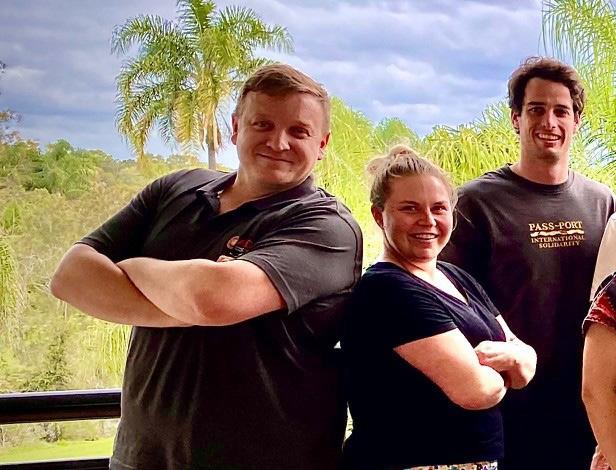
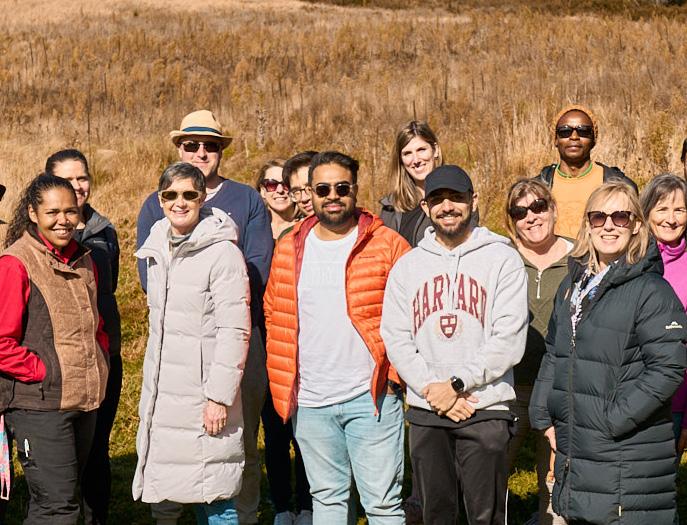



10 Contents ISSUE 70 / February 2023 26 32 29 Articles 08. Step-change needed to make genuine and sustainable progress in Closing the Gap 10. Managing disclosures of family violence — are our medical graduates up to the task? 14. Co-designing culturally responsive care 18. ‘Building back better’ after COVID-19 in First Nations remote Primary Health Care 20. Health worker helps deliver Integrated Team Care at Yarrabah 22. Improving cultural competency and safety in primary health care 26. Specialist Trainee Support Program for Aboriginal and Torres Strait Islander doctors 29. Cultural competency key to improving health outcomes 32. Closing the cross-border gap for the Goondiwindi region From the AHHA desk 04. Chief Executive update 06. AHHA in the news 34. Become an AHHA member 35. More about the AHHA
KYLIE WOOLCOCK Chief Executive AHHA

Closing the Gap
This issue of The Health Advocate is dedicated to closing the health equity gap experienced by First Nations Australians, and how entities within the health system are contributing towards this vital goal. We also want to amplify and raise up First Nations voices and organisations, sharing their work, views and experiences, as this is an integral part of the journey if we are to successfully ‘Close the Gap’.
It is well-established that Aboriginal and Torres Strait Islander people face considerable health inequities. Aboriginal Community Controlled Health Organisations were established as a result of mainstream health services not effectively engaging Aboriginal communities with their services. They have the objective of delivering holistic, comprehensive and culturally appropriate health care to the community which controls it.
However, improving cultural respect and safety for Aboriginal and Torres Strait Islander health care users also requires the whole health system to respect Indigenous cultural values, strengths and differences, and address racism and inequity. In supporting access to health care, mainstream services require attention both to how care is provided and how care is experienced.
The cases reflected in these articles emphasise the importance of understanding the experiences of Aboriginal and Torres Strait Islander people, implementing open communications with family and community, and focusing on models of care that are inclusive and empowering.
These are journeys of continued improvement. Together we must support and listen to maximise the impact of research that is built on the priorities identified by Aboriginal and Torres Strait Islander people. ha

4 The Health Advocate • FEBRUARY 2023
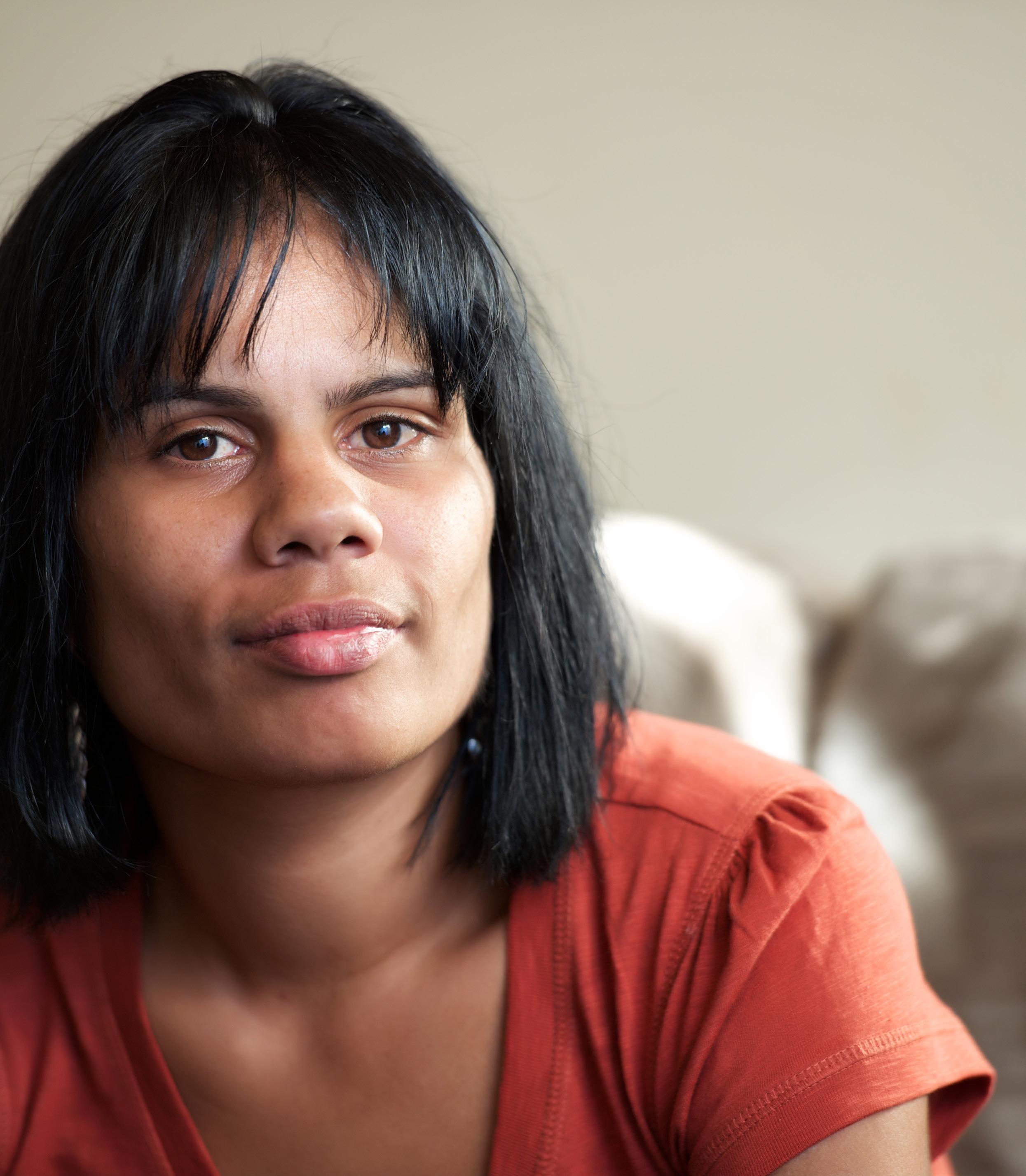
CHIEF EXECUTIVE UPDATE
GARY RADLERRF COMMERCIAL
“It is well-established that Aboriginal and Torres Strait Islander people face considerable health inequities.”
AHHA in the news
25 OCTOBER 2022
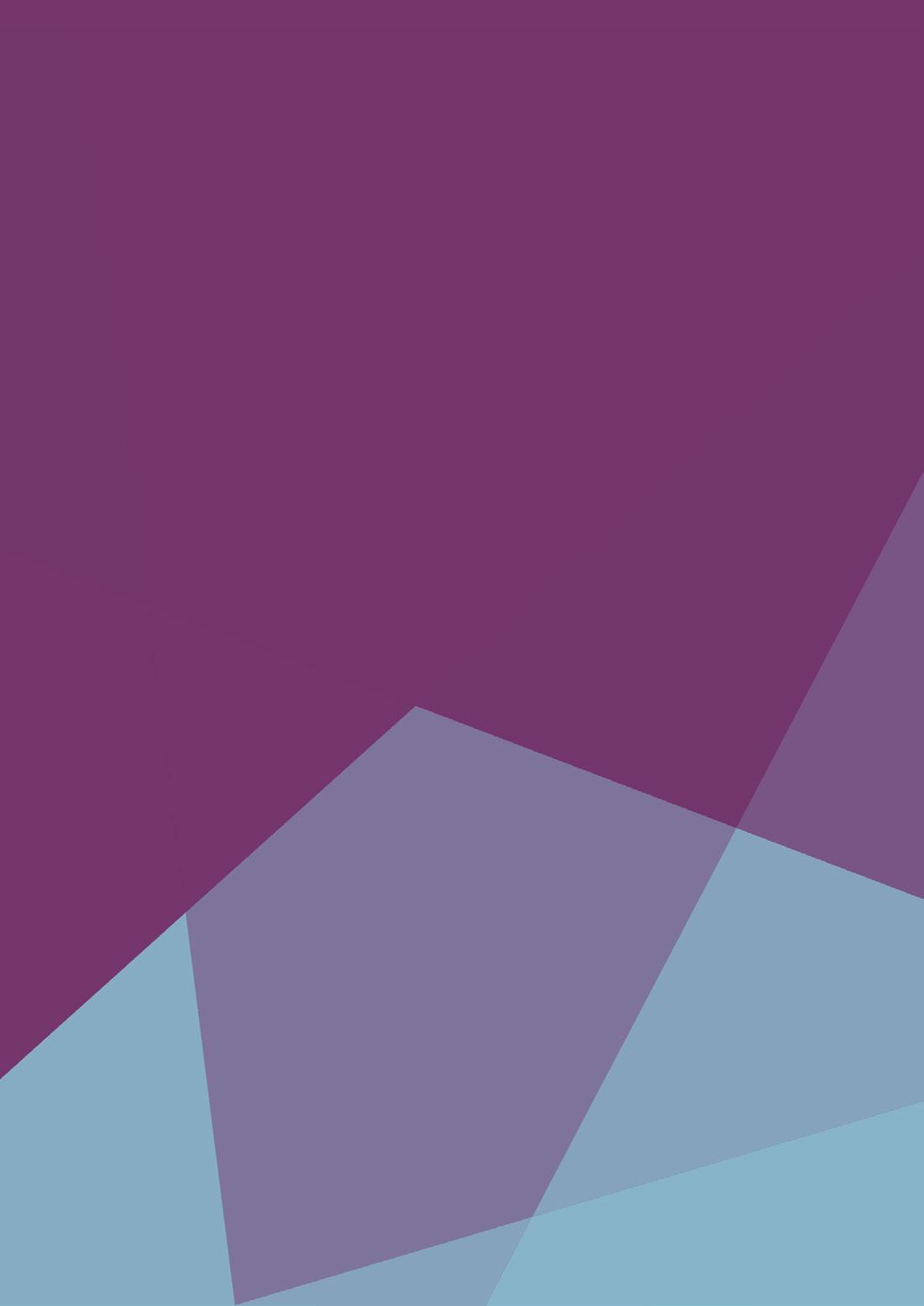

6 DECEMBER 2022
Perspectives Brief
no: 24 25 October 2022
Perspectives Brief
no: 24 25 October 2022
Towards a thriving healthcare workforce
no: 19 01/02/2022
A focus on community and patients, clarity of roles, communication, education and training; as well as strong clinical governance and mechanisms that support coordination and integration will be critical to maintaining an agile, responsive and safe workforce for the future. Released by AHHA’s Deeble Institute for Health Policy Research, and authored by leading experts from Deakin University, the Perspectives Brief ‘Towards a thriving healthcare workforce’ examines the complex issue of health workforce wellbeing and outlines solutions on how we can best promote the development of a sustainable healthcare workforce. ha
Towards a thriving healthcare workforce


no: 19 01/02/2022
The Brief is authored by Professor Henry Cutler, Inaugural Deeble Institute Fellow and Inaugural Director, Macquarie University Centre for Health Economics (MUCHE), Macquarie University. It outlines four key recommendations, including the development of a cohesive vision and national 10-year plan for value-based payment integration into the healthcare system and the creation of an independent national payment authority to implement the national plan. ha
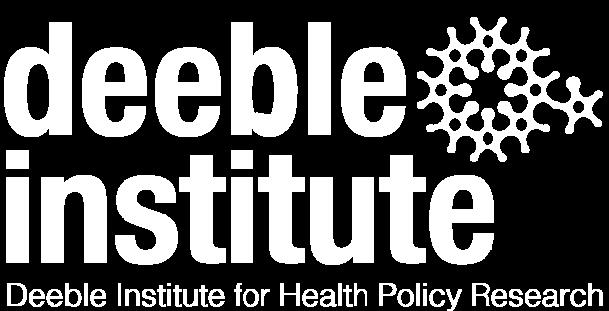

6 The Health Advocate • FEBRUARY 2023
FROM THE AHHA DESK
A/Prof Kate Huggins1,2 Prof Anna Peeters1 Dr Sara Holton1,3 Dr Karen Wynter1,3 Prof Alison Hutchinson1,3 Prof Bodil Rasmussen1,3 Prof Anthony LaMontagne1,2 1Institute for Health Transformation 2School of Health and Social Development and 3School of Nursing and Midwifery Deakin University E: kate.huggins@deakin.edu.au
A/Prof Kate Huggins1,2 Prof Anna Peeters1 Dr Sara Holton1,3 Dr Karen Wynter1,3 Prof Alison Hutchinson1,3 Prof Bodil Rasmussen1,3 Prof Anthony LaMontagne1,2 1Institute for Health Transformation 2School of Health and Social Development and 3School of Nursing and Midwifery Deakin University E: kate.huggins@deakin.edu.au
HAVE YOUR SAY...
We would like to hear your opinion on these or any other healthcare issues. Send your comments and article pitches to our media inbox: communications@ahha.asn.au
8 DECEMBER 2022
Australian Health Review
15 DECEMBER 2022





HumanAbility
Stronger, more strategic voice for vocational education and training for health
www.ahha.asn.au
www.publish.csiro.au/journals/ahr
Australia’s healthcare system.
Out-of-pocket expenses for medical services can vary widely depending on where you live, what services you are trying to access as well as variation between individual providers. While there can occasionally be some price reduction on the part of an individual provider in the case of patients with lower or no incomes, this does not make up for the overall disadvantage to those who can’t afford services that are not 100% bulk billed through Medicare. This means that patients are more likely to delay or avoid care and treatment altogether. ha
AHHA has welcomed the announcement from the Federal Minister for Skills and Training, The Hon Brendan O’Connor MP, on the establishment of the Jobs and Skills Council. The Council leading and driving the performance of the national Vocational Education and Training (VET) system for the health and human services, early education and sport and recreation sectors, will be known as HumanAbility.
AHHA has been announced as the successful lead applicant on a consortium that will establish HumanAbility. This Jobs and Skills Council creates a genuine and collaborative tripartite membership reaching across organisations of all sizes and types, where we can draw on strategic workforce, educational and learner perspectives.
HumanAbility recognises the commonality of skills and workforce challenges facing the health and human services, early education and sport and recreation sectors. All are focused on the wellbeing of individuals and communities. The HumanAbility consortium thanks SkillsIQ for the support and advice provided during the tender process and looks forward to working with them on future projects. ha
The Health Advocate • FEBRUARY 2023 7
Journal of the Australian Healthcare & Hospitals Association
Step-change needed to make genuine and sustainable progress in Closing the Gap
The newly released Annual Report on Closing the Gap shows limited progress on the key targets for improving life outcomes for First Nations Australians.
Initiatives that recognise First Nations leadership, provide genuine opportunities for decision making and strengthen and embed cultures will lead to positive sustainable improvements in health and wellbeing outcomes. As co-Chairs of the Close the Gap Campaign, we represent 55 First Nations and mainstream organisations who—since 2006—have come together as allies to advocate for greater investment and changed ways of working to enable First Nations health equality to become a reality.
Over the past sixteen years, this Campaign, our Indigenous Leadership and our allies have provided guidance and solutions to some of the most pressing issues in our communities.
We concur with the Government’s view that Australia can and must do better on the four
Priority Reforms and all 17 socio-economic targets.
While we are encouraged by the steps that have been taken across the four improved target areas, it is very clear that a step-change is required if we are to make genuine and sustainable gains.
Since the National Partnership Agreement came into effect, progressing the foundational work for delivering the Closing the Gap Strategy has been the primary focus. We respect the time, care and dedication that has gone into this process.
However, the need to apply this good work is growing greater by the day. Of those targets where data is available, outcomes have declined across four critical targets: school readiness; adult incarceration; suicide; and children in out-of-home care, and we know that a decline across any target area will only make the work to improving all outcomes more difficult.
The new Priority Reform Areas are central to Closing the Gap, as they set the pre-conditions to
8 The Health Advocate • FEBRUARY 2023
achieve socio-economic targets, and provide the potential to drive generational change for First Nations people across Australia.
We need to see action on these Priority Reforms along with a robust evaluation framework that holds each jurisdiction to account on making genuine progress on their commitment to transformation.
‘While we cannot ignore the lack of progress on the ground and the further trauma that is creating each and every day, there is a real opportunity before us to change the future. We have a seat at the table and we have a Government who understands that system transformation is inseparable from program effectiveness—that it has been our exclusion and the absence of our voices, that has led to uninformed systems, policies and practices which have caused us harm,’ said Commissioner Oscar
We have a real opportunity to come together to close the gap. As co-Chair Karl Briscoe states ‘the major difference is that now there is Indigenous Leadership at the table. For decades we have called for genuine co-design and shared decision-making opportunities. The New National Agreement presents us with that opportunity, to progress the important issues of the health and wellbeing of Aboriginal and Torres Strait Islander peoples’.
The road ahead will not be without obstacles, but if we have the courage to act—to work together towards a shared vision, we know it can be done.
The Campaign calls on governments and all key stakeholders to reflect on the way they currently do business, explore good practice and allyship, and to take real, measurable action to achieve equality for First Nations in Australia. ha


The Health Advocate • FEBRUARY 2023 9
JUNE OSCAR AO Commissioner of Aboriginal and Torres Strait Islander Social Justice, Co-Chair of Close the Gap
KARL BRISCOE CEO National Aboriginal and Torres Strait Islander Health Workers’ Association, Co-Chair of Close the Gap
“The New National Agreement presents us with that opportunity, to progress the important issues of the health and wellbeing of Aboriginal and Torres Strait Islander peoples.”
Managing disclosures of family violence –are our medical graduates up to the task?
How my experience with racism inspired an innovative clinic in one of Victoria’s oldest hospitals
I still remember the first day I met a First Nations doctor. It was a profoundly impactful moment that led to my decision to study medicine, which was a career I had always wanted for myself but never truly felt achievable up until that moment. I cannot do justice to the protective benefit that having First Nations people in medicine, particularly at senior levels, has had upon me. It was First Nations doctors who stood beside me when I had to reconcile myself with the deeply distressing impact of racism from my medical peers. For a long time, I felt that racism in medicine was a dirty little secret. Something spoken about in short snippets as hurried conversations in corridors that usually went nowhere other than the sad glance of a sympathetic colleague, clearly distressed by the account of racism in medicine but still unsure how to advocate for change.
If you ask First Nations people about their experiences of our hospitals, their accounts are damning. There is no question that racism impacts the care people receive in our hospitals. This racism costs lives, such as that of Wiradjuri woman, Naomi Williams, and her unborn baby1. For myself, comments on my appearance as an Aboriginal doctor have always been hurtful and undermined my safety and confidence while training. My most defining experience of racism, however, occurred after I made a genuine disclosure of life-threatening family violence and sought support from my senior colleagues during this time. The lack of support I received; not so much as a phone call or even a cup of coffee from my training supervisor, limited on-call cover and bullying from another who, even in the face of serious and life-threatening family violence,
10 The Health Advocate • FEBRUARY 2023
inexplicitly felt that my priority should be listing off lists of differential diagnoses and mnemonics for my exam.
The fact that doctors manage disclosures of family violence poorly should not be a surprise to anyone who works in medicine. What training have we had? For most of us, very little. Family violence training was never part of my medical school or specialist training. None of my clinical supervisors prior to my disclosure had family violence training and were, I assert, predictably inadequate in their responses. First Nations woman and children do experience higher rates of family violence but are not the only victims with many groups of different backgrounds and statuses affected, although disproportional impacted are woman and their children2,3. At what point, does our reluctance to adequately train doctors who have the expertise to
DR CRYSTAL WILLIAMS
Consultant Dermatologist and Clinical Lead First Nations Dermatology Service Royal Melbourne Hospital
Director, Australian Indigenous Doctors’ Association

Visiting specialist to Royal Darwin and Palmerston Regional Hospital
manage disclosures of family violence continue to perpetuate this gender and health inequity?
All in all, my experience of racism left me wondering that if I had been a doctor of any other racial background other than Aboriginal, would the lives of my family members have been valued more by my peers? Would I have received more support? Would my colleagues have been more willing to cover my on-call? The answers to these questions may be academic to others but are deeply personal to me. This is the sometimes-non-quantifiable racism experienced every day by First Nations people who interact with the hospital system, clinical supervisors and training providers.
For me, it informed my decision to establish a clinic dedicated to First Nations people within the Royal Melbourne Hospital. Where First Nations people are seen by a First Nations doctor in a >
The Health Advocate • FEBRUARY 2023 11
space where the care and dignity of the individual are prioritised above racism and bias. I am pleased to announce that the clinic has an ongoing community partnership with Victorian Aboriginal Community Controlled Health Organisation (VACCHO) following their generous support and has secured five years of funding to allow it to become a more permanent place within the hospital. There is a dedicated space where First Nations people are welcome, and I am allowed to speak about the impact of racism with my colleagues and the generations of new doctors coming through.
Overwhelming, my hope for the future is that hospitals, medical schools and specialist training providers recognise that family violence as an important health issue, and embrace our role as medical professionals in supporting and advocating for victims and survivors of family violence. Let’s pledge a commitment to train doctors and clinical supervisors capable of managing family violence disclosures as part of our commitment to the safety of woman, children and priority community groups. Lastly, I hope that no other trainee is ever treated the inexcusable way I was treated by my hospital colleagues in response to a family violence disclosure. By talking about these things openly, I hope we demand a higher standard of ourselves as doctors and petition our training providers to produce graduates and clinical supervisors up to this critical task. ha
Dr Williams is a Wiradjuri woman, consultant dermatologist and clinical lead of the First Nations Teledermatology Clinic at the Royal Melbourne Hospital located on the lands of the Wurundjeri people of the Kulin Nations. She established the First Nations Teledermatology Clinic as a senior registrar to help overcome barriers to specialist dermatology care and was recognised in the inaugural Telstra Brilliant Women in Digital Health Awards for this clinic. She also provides a visiting specialist service to Northern Australia and sits on the Board of Directors of the Australian Indigenous Doctors’ Association (AIDA).
References:
1. Inquest into the death Naomi Williams: https://coroners. nsw.gov.au/coroners-court/download.html/documents/ findings/2019/Naomi%20Williams%20findings.pdf
2. Victorian Royal Commission on Family Violence Report: https://www.vic.gov.au/about-royal-commission-familyviolence
3. Link to AIHW Report on Family, domestic and sexual violence in Australia: continuing the national story 2019: https://www.aihw.gov.au/reports/domestic-violence/familydomestic-sexual-violence-australia-2019/contents/summary
12 The Health Advocate • FEBRUARY 2023
“It was First Nations doctors who stood beside me when I had to reconcile myself with the deeply distressing impact of racism from my medical peers. For a long time, I felt that racism in medicine was a dirty little secret.”
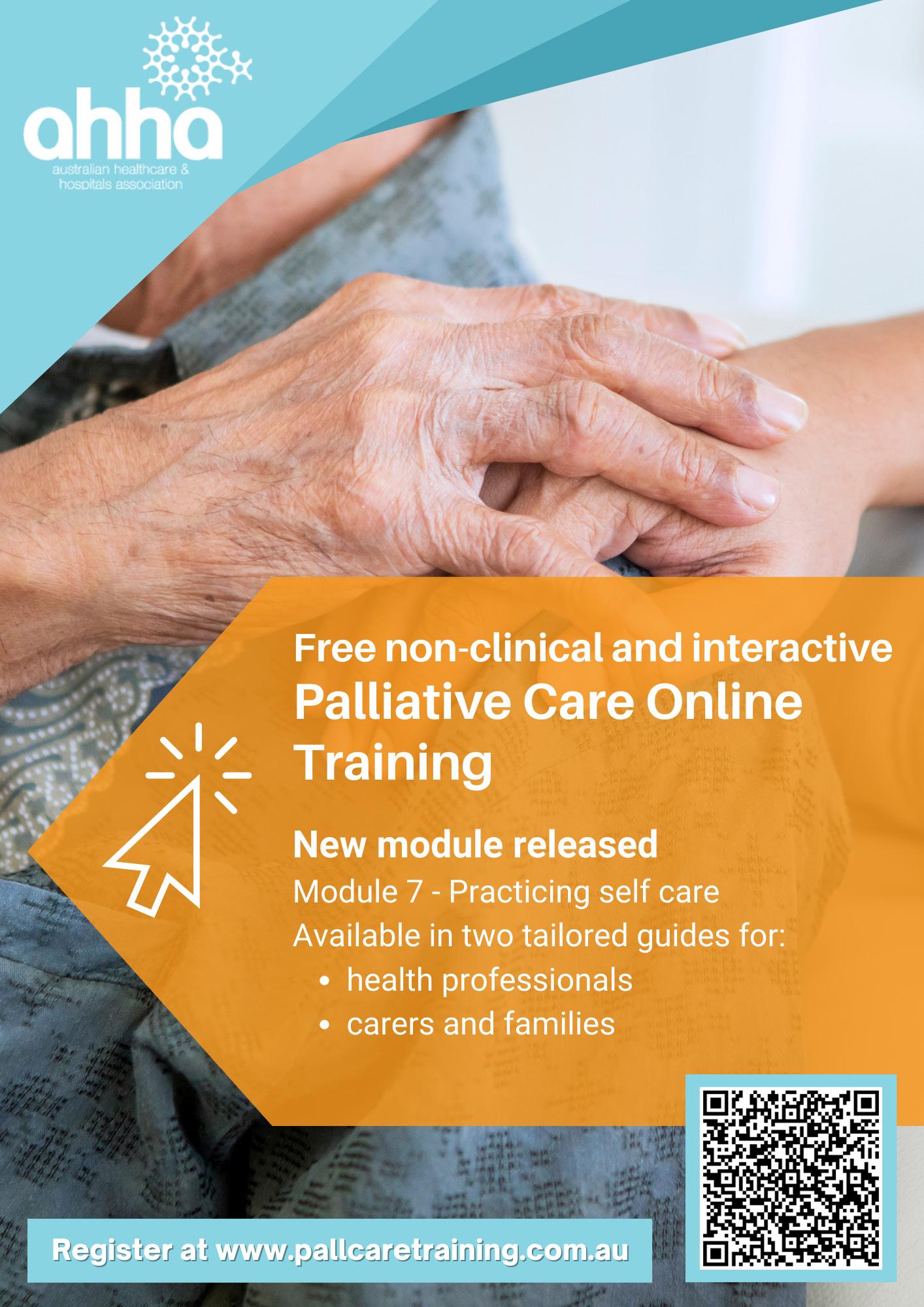
SORELLE DOHERTY

Team Leader Adult Community Health Service Cairns and Deputy Chair CHHHS Clinical Council, Cairns and Hinterland Hospital and Health Service
Co-designing culturally responsive care
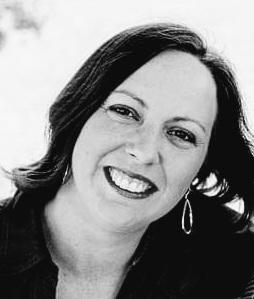
A case study from the Australian Centre for Value-Based Health Care
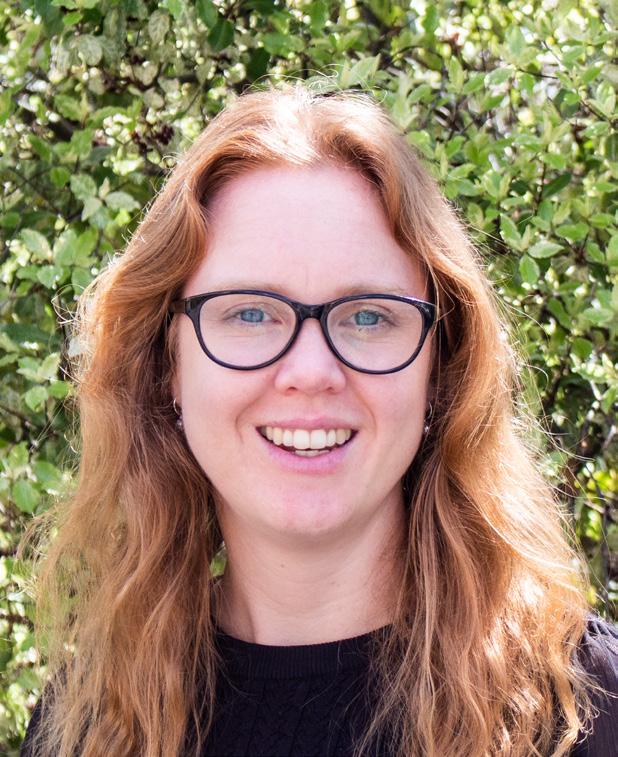
The Queensland Health Allied Health Framework for Value-Based Health Care was developed throughout 2021 in collaboration with the Office of the Chief Allied Health Officer, Clinical Excellence Queensland. It was developed to support allied health services in the continuous drive for person-centred approaches to improve health outcomes and the experience of care across a full care pathway for people, service providers, communities, health professionals and populations. This case study illustrates the shift towards ValueBased Health Care achieved with older residents within the Aboriginal community of Yarrabah in Far
North Queensland. Described against the domains of the Framework (see Figure), it highlights in particular the importance of understanding community needs and inter-agency collaboration.
Where to start?
In 2021, the Aged Care Assessment Team (ACAT) from the Cairns and Hinterland Health and Hospital Service (HHS) identified that despite having a high proportion of ageing community members with complex needs, there was a very small number of referrals to ACAT from the Aboriginal community of Yarrabah, in Far North Queensland.
14 The Health Advocate • FEBRUARY 2023
EMMA HOBAN Policy Manager, Australian Healthcare & Hospitals Association
ABBEY WROOT Senior Occupational Therapist
To improve health outcomes for the population segment of older residents within the Yarrabah community, ACAT needed to reconsider and redesign how they were partnering with the community to deliver care.
Understanding care pathways and shared needs
The first and most important step was to ensure they had a holistic understanding of community need. To do this they needed to establish trust and develop genuine and respectful relationships with the community, and existing trusted communitycontrolled services and providers including the local Aboriginal Medical Service (AMS) Gurriny
Yealamucka, and community service provider Mutkin Aged and Community Care.
Building relationships with Indigenous Health Workers, who act as leaders both within the community and within health service, was also fundamental to facilitating a better understanding of need, informing the design and ultimately, the success of the new culturally responsive model of care.
ACAT and Gurriny also set about reviewing the current ACAT assessment process to identify and analyse what was and wasn’t working well. Both formal and informal community consultation was >
The Health Advocate • FEBRUARY 2023 15
| 2 built upon to support the implementation of VBHC. The complete Framework can be accessed at: www.health.qld.gov.au/ahwac/html/VBHC
and communities Understand the care pathway shared needs Support an outcome-driven workforce culture Measure what matters Design for outcomes Where do I start? • Partner with consumers
Population segment identification
Sphere of influence
Ref: https://www.health.qld.gov.au/ahwac/html/VBHC
People
•
•
undertaken, which involved informal conversations with community members and staff at Gurriny and Mutkin (community care organisation), interagency case conferencing and stakeholder meetings. Through this process several areas of shared needs were identified including:
• Lack of understanding of the aged care system by community members and the health services in Yarrabah.
• Unclear ACAT referral process for local services and clients.
• Low ACAT referral numbers and high cancellation rates.
• Clients unable to access the care they had been approved for.
• Clients not receiving notification of home care package allocation via post.
• Difficulty contacting clients due to absence of a mobile phone, poor coverage and unreliable post system.
• Clients not feeling culturally safe within models of care in which ACAT assessment were performed within a single visit.
Designing for outcomes
In response to the identified shared needs and in collaboration with community, ACAT and Gurriny co-designed a more flexible model of ACAT assessment, focused on improving the outcomes that were important to the Yarrabah community. The new model established an introductory home visit led by the Indigenous Health Worker acting as a cultural broker, where the client was introduced to the assessor, the purpose of assessment was explained and consent for assessment was obtained. This process allowed for important family members to be identified and present for the assessment visit. A follow up home visit would then occur to explain the outcome of assessment and deliver client documents. 6 months post-assessment, a client follow up would again be completed to ensure clients, families and service
providers were supported to take up offered home care packages and to provide information on next steps. Issues with receiving correspondence were addressed by having My Aged Care correspondence sent to the AMS who would deliver documents to the client and provide the support and education as needed.
A single, dedicated ACAT assessor was also embedded within the Gurriny service on a regular basis. The assessor became the primary email and phone contact for enquiries and was able to provide education around the aged care system both formally and informally to providers and community members. This regular physical presence allowed ACAT to build community trust and engage with health services and the community in a more meaningful way.
Measuring what matters
A retrospective data analysis showed that referral numbers increased from 13 in 2019 to 44 in 2021. In 2019 referrals were mostly made by the service provider, Mutkin, whereas in 2021 referrals were also received from Gurriny doctors, nurses and health workers.
In 2019, prior to the development of the new model of care, 8 people had been approved for a home care package, yet none had accessed their package. When data was again collected in 2021, 20 clients had been approved for a home care package, with 5 receiving their home care package, 4 allocated a package and awaiting commencement of services, 6 still on the National Queue for their package, 3 withdrawn due to accessing residential care, 1 person had passed away and 1 had not taken up their offered package.
This data demonstrates that the new model of care has resulted in more community members being able to access assessment and, most importantly, aged care supports following assessment.
16 The Health Advocate • FEBRUARY 2023
Support an outcome driven workplace culture
Prior to the implementation of the new model of care, ACAT, Gurriny and Mutkin were working mostly in isolation. There were no robust means to facilitate ongoing communication between the 3 services, particularly in relation to shared clients.
All three stakeholders identified the need to strengthen relationships and communication between services. This was achieved through participation in fortnightly case conferences where clients in need of support were discussed, referrals were made to each other’s services, and previous referrals were followed up. It also included an educational element allowing services to learn from each other.
Structures to promote ongoing communication and collaboration, ensured the 3 stakeholders were working towards shared goals and supported an outcome focused culture in relation to aged care services. A strong element of the culture fostered through collaboration was an openness to learning from each other, through both informal and formal learning opportunities.
Challenges and enablers
Executive buy-in and ‘permission to lead’ were critical enablers of the success of the new model of care, with the ACAT assessor on the ground in Yarrabah trusted to use their judgement and make changes in response to need. The openness of Gurriny and Mutkin around embracing and seeing value in the change to service delivery was another key enabler.
Succession planning for the ACAT assessor role has been a challenge, impacting the ability of
ACAT to ensure the continued implementation of the model of care with a suitably experienced assessor.
COVID-19 has also posed challenges with community access restrictions impacting the ability of ACAT to maintain regular visits to the Yarrabah community. Competing COVID-19 related priorities within Gurriny (vaccination and outbreak management) have also impacted ACAT access to Gurriny staff, a critical partner in the delivery of the new service model. ha
The Health Advocate • FEBRUARY 2023 17
“A strong element of the culture fostered through collaboration was an openness to learning from each other, through both informal and formal learning opportunities.”
‘Building back better’ after COVID-19 in First Nations remote Primary Health Care
Health Coaching for Aboriginal and Torres Strait Islander Peoples with Chronic Conditions
The Health of First Nations Australians
First Nations Australians continue to experience poorer health than the general Australian population, underpinned by a disproportionate burden of chronic conditions. More than 70% of the gap in life expectancy between First Nations Australians and the general Australian population is due to chronic conditions including mental health, kidney, heart, diabetes, and respiratory disease. The common risk factors are smoking, nutrition, physical activity, alcohol consumption, social and emotional wellbeing and socio-economic disadvantage. First Nations health service users have identified self-management support for chronic conditions as a critical service gap and identified Health Coaching as an ideal primary health care (PHC) team role for First Nations clinicians. (https://www.publish.csiro.au/AH/AH18107)
Industry Solution Co-design
Responding to health needs and expressed priorities of health service users, KWHB led a consortium of PHC providers and training organisations to translate an evidence-based Health Coaching curriculum from the United States to the remote NT PHC context. The accredited curriculum
development was funded with Indigenous Australians’ Health Programme Emerging Priorities funding, and we partnered with Red Lily Health Board, Aboriginal and Medical Services Alliance Northern Territory, the NT Primary Health Network, Ninti-training, NT Health, and received strong support from the National Association of Aboriginal and Torres Strait Islander Health Workers and Practitioners. Together, we have delivered a nationally accredited (certificate 3 level) two unit, vocational education training course (microcredential) also as an enabler to formal Aboriginal Health Practitioner qualifications (Certificate III and Certificate IV). First Nations leadership and collaboration with Industry in the design of the course was crucial, to ensure industry skills gaps and implementation needs were being met.
Health coaching will help health service clients with chronic conditions develop the knowledge, skills and confidence to self-manage their health while strengthening engagement with care and providing an optimal entry point into a health career for; remote community school leavers, unemployed youth, mature-age learners and previous or current Aboriginal Health Worker/ Practitioners.
18 The Health Advocate • FEBRUARY 2023
Policy alignment and national appeal
Health Coaching is a community-driven and designed health innovation in remote Australia that demonstrates strong alignment with National and NT policy priorities such as the National and NT Aboriginal and Torres Strait Islander Health Plans, the Aboriginal and Torrs Strait Islander Health Workforce Strategy and Federal Labor’s election commitment to train an additional 500 Aboriginal Health Workers in coming years. As a nationally accredited vocational education training course, Health Coaching has broad appeal across the First Nations Primary Health Care sector, with strong interest expressed in urban, remote and across multiple states and territories. This augurs well for a future national rollout of this evidencebased and effective health innovation.
‘On-Country’ education and workplace support critical to successful implementation
Our First Nations led co-design group observed that it was no coincidence that the decades-long decline in the First Nations clinical workforce coincided with centralisation of health education off community. This delivered a double blow with (1) First Nations students experiencing enormous barriers to complete their training due to community, family and cultural obligations preventing travel and (2) the loss of nonAboriginal employee skills in workplace training, mentoring and support. For health coaching to be successful, education and workplace support must be brought back to the community — which is consistent with the apprenticeship model we use to train nurses and doctors. However, this is the current implementation gap for health coaching in remote Australia. While services have funding to employ and train First Nations staff, funding is now required to bring educators back into community settings. We are actively seeking dialogue with potential funders to close this implementation gap and bring health educators back into community settings. This marginal investment will deliver enormous returns in addressing intergenerational disadvantage in remote Australia while helping to close the life expectancy gap for First Nations Australians. ha
For further information contact: Sinon Cooney (KWHB) sinon.cooney@kwhb.com.au
427091295
SINON COONEY
RN, CEO, Katherine West Health Board (KWHB)
ASSOCIATE PROFESSOR



PAUL BURGESS
Senior Registered Medical Practitioner, Nganmarriyanga (Palumpa), Population and Primary Health Care, NT Health
RN, Curriculum Writer, Katherine West Health Board (KWHB)
RN, Aboriginal Clinical Lead, NT Health
The Health Advocate • FEBRUARY 2023 19
ALLISON HINTON
TAMMY ALLYNFERNANDES
Health worker helps deliver Integrated Team Care at Yarrabah
Good cultural relationships are being established with community members
With more than five years’ experience as a health worker within the Yarrabah community, Belita Kynuna of Gurriny Yealamucka Health Services Aboriginal Corporation has seen her fair share of changes and improvements in the health practices and outcomes in her community.

Perhaps the greatest and most recent change will deliver real and lasting results for her people by developing good relationships within the community and ensuring people engage with the health service to receive advice and treatment.
Ms Kynuna is one of a dozen or more Indigenous Health Care Workers and nurses working within the Community Care Coordination Team delivering the Integrated Team Care (ITC) Program in Yarrabah.
ITC is a Health Worker-led program linking community-based clients with clinicians (nurses and doctors). It is funded by Northern Queensland Primary Health Network (NQPHN).
The ITC program in Yarrabah has been particularly successful in building the relationship between the community and the health care provider, Gurriny Yealamucka.
‘We have seen an increase in the willingness of many of our clients to seek assistance early from our Health Care Workers,’ Ms Kynuna said.
20 The Health Advocate • FEBRUARY 2023
NQPHN Communications and Marketing Team
Gurriny Yealamucka health worker Belita Kynuna with patient Tshahna Sands-Sexton.
Earlier this month Ms Kynuna and her team, another Indigenous Health Care Worker (IHCW), and an Endorsed Enrolled Nurse (EEN) reached out to a young Yarrabah woman previously diagnosed with Rheumatic Heart Disease (RHD), but unfortunately had disengaged with the service in the past 12 months.
The regular contact over the past year, along with a focus upon culturally safe care, led the young woman to recommence her Bicillin injection course again.
Young Yarrabah community member Tshahna Sands-Sexton was diagnosed with RHD at the age of 16 and underwent surgery two years later. It was not the best news to hear as a young adult.
‘It really shook me up. It was a very scary time, especially around the time of the surgery,’ Ms Sands-Sexton said.
‘The past few years have been difficult. I thought as an RHD sufferer the injections were going to have a bad effect on my body. It was my mind playing games with me.
‘The Care Coordination Team (CCT) kept following me up, trying to get me back on track.
I’m glad they did, I need the regular reminder and support. RHD is not easy to live with or manage, but these guys help me so much.’
RHD is not hereditary. Aboriginal and Torres Strait Islander people are more at risk due to many of the common issues they confront every day. It is a disease of poverty and disadvantage.
Sub-standard housing combined with overcrowding, poor facilities like non-functioning showers, inadequate hot water and a lack of good clothes washing facilities, put Yarrabah community members at risk from RHD.
Yarrabah has one of the highest instances of RHD in Australia with more than 200 registered living within the community.
The diagnoses and management of RHD and many of the more common ailments such as diabetes and kidney disease drive the CCT program delivery in Yarrabah.
Yarrabah is divided into three zones with a separate CCT responsible for managing the health care outreach for all residents within their geographical zone.
‘This zoned approach allows us to build stronger and better relationships with our clients. We get to know them better, understand their health needs as well as understanding better many of the issues that do impact upon their health and their willingness to seek help,’ Ms Kynuna said.
‘It’s all about building trust, they have to trust us and trust that we will always be strong advocates for their health issues.’ ha
This story was originally published on NQPHN’s website, and can be viewed here:
https://www.nqphn.com.au/news/our-regionour-people-meet-belita
The Health Advocate • FEBRUARY 2023 21
“The diagnoses and management of RHD and many of the more common ailments such as diabetes and kidney disease drive the CCT program delivery in Yarrabah.”
‘The regular and culturally respectful contact we have is producing great results.’
Improving cultural competency and safety in primary health care
Findings from Aboriginal Community Consultations in the Midwest, Perth, South West, and Goldfields regions of Western Australia
Breaking down barriers to care for Aboriginal people in Western Australia

Improving the cultural competence of primary health care services might not be the first thing that springs to mind when trying to tackle the significant disparity in health care access and outcomes faced by the almost 80,000 people in Western Australia (WA) who identify as Aboriginal. But with the gap in life expectancy for Aboriginal men and women continuing to exist at 15.1 and 13.5 years lower than non-Indigenous Western Australians1, at WA Primary Health Alliance, as the operator of WA’s three Primary Health Networks,
we knew something fundamental had to change. This dire situation is also reflected at a national level, where despite the National Closing the Gap Commitments, the 2019 National Aboriginal and Torres Strait Islander Health Survey showed an increase in the percentage of Aboriginal people with chronic conditions and in those who were overweight; showed no improvement in the percentage of people with psychological distress; and showed lower rates of access to health care services.2
WA Primary Health Alliance identified the need to develop a cultural competency framework to build
22 The Health Advocate • FEBRUARY 2023
MARK GRIFFIN Senior Advisor Aboriginal Health, WA Primary Health Alliance (WAPHA)
“We recognised the importance of hearing directly from Aboriginal people and communities on what makes a service culturally safe and accessible.”
Figure 1: Feedback from community consultations on what enables a service to be culturally safe

on, and improve, cultural safety and access to primary health care services for Aboriginal people.
Acknowledging that the Aboriginal Community Controlled Health Sector was already advanced in providing culturally safe care, we wanted to learn from its best practice and understand how to apply those strengths to improve the way other primary health care services we commission are delivered.
Safe services are usually developed and implemented in partnership with local Aboriginal health teams and organisations, Elders and communities and are delivered by culturally competent staff members.
We recognised the importance of hearing directly from Aboriginal people and communities on what makes a service culturally safe and accessible. We engaged Aboriginal consultant, Kambarang Services, to facilitate four participatory group consultations in the Midwest, Perth, South West, and Goldfields regions of WA, with 120 Aboriginal community members and Elders attending.
Participants were asked to describe what enables a service to be culturally safe, what barriers prevent them from accessing a service and the key elements to explore in developing the Framework. The feedback we received was rich and highly informative.
The Health Advocate • FEBRUARY 2023 23
>
It showed that barriers still exist that prevent Aboriginal people from accessing appropriate primary health care services. Improving cultural competency of services can be achieved by listening to, and acting on, what Aboriginal people say, and this supports them to feel culturally safe. Services that commit to cultural training; Aboriginal workforce development; holistic personcentred care; and community engagement can create welcoming environments for Aboriginal people, increasing access and meeting their cultural and health care needs.
We are using the feedback to inform the development of the Framework, which will establish clear actions and standards to improve the level of cultural competency in primary health care services and cultural safety for Aboriginal people using those services. It is important to recognise that improving cultural competency and safety cannot be achieved simply by implementing cultural training, or by any one key element, but is a journey that is built upon ongoing learning, commitment, resources and continuous quality improvement processes.
WA Primary Health Alliance is now on a learning journey towards authentic partnerships with Aboriginal communities and we will use the Framework to hold ourselves accountable to a high standard of cultural competence — to our board, staff and, most importantly, community members.
Once complete, the Framework will complement our Innovate Reconciliation Action Plan and Aboriginal Health Strategy, which further demonstrate our commitment to Aboriginal people. Due to be launched this year, the Framework will be a key part of WA Primary Health Alliance’s commitment to equity, inclusion and diversity. It will be at the heart of who we are as an organisation and the change we are striving for on behalf of our Western Australian communities most at risk of adverse health outcomes. ha
References:
1. 2016 Census: Aboriginal and/or Torres Strait Islander Peoples QuickStats
2. https://www.abs.gov.au/statistics/people/aboriginal-andtorres-strait-islander-peoples/national-aboriginal-and-torresstrait-islander-health-survey/latest-release
24 The Health Advocate • FEBRUARY 2023
“It is important to recognise that improving cultural competency and safety cannot be achieved simply by implementing cultural training, or by any one key element, but is a journey that is built upon ongoing learning, commitment, resources and continuous quality improvement processes.”
Build your skills in palliative care and advance care planning.
Primary care clinicians can access free, evidence-based resources about palliative care and advance care planning in the ELDAC Primary Care Toolkit.


This free online Toolkit contains:
• Clincial tools and resources across eight key areas relevant to your older patients;
• Education, training and quality improvement strategies;
• Resources to improve coordination and cooperation between services and providers; and
• Information on how to access and develop local HealthPathways.
Visit the Primary Care Toolkit on the ELDAC website to get started today.
eldac.com.au
The Health Advocate • FEBRUARY 2023 25 ELDAC is funded by the Australian Government Department of Health
Specialist Trainee Support Program for Aboriginal and Torres Strait Islander doctors
Since its establishment in 1997, the Australian Indigenous Doctors’ Association (AIDA) has represented, advocated for, and supported the growth of Aboriginal and Torres Strait Islander medical students and doctors. There are now over 600 Aboriginal and Torres Strait Islander doctors working across Australia in diverse roles and making an extraordinary contribution to healthcare in Australia.
Following celebrations of AIDA’s 25th year, we have established a program that supports our Aboriginal and Torres Strait Islander specialists. While the growth of this overall workforce is significant, Aboriginal and Torres Strait Islander doctors are still underrepresented in medical specialties. Data provided by speciality colleges in 2021, showed that of the non-General Practitioner (GP) specialties just 50 Aboriginal and/or Torres Strait Islander Fellows were identified.
In recognition of the success of the Indigenous GP Registrar Network since its establishment in 2008, and in response to underrepresentation of our people in non-GP specialties, AIDA has established the AIDA Specialist Trainee Support Program (STSP) to support recruitment, retention and workforce
growth of Aboriginal and Torres Strait Islander non-GP specialists.
From 6-8 October 2022 AIDA held an inaugural workshop with 16 Aboriginal and Torres Strait Islander doctors from eight different specialties and subspecialties from across Australia.
The workshop was opened by Elder, Uncle John Graham, from the Yugambeh Region Aboriginal Corporation Alliance. In addition to tailored education sessions, a highlight for the registrars and their families was the local cultural activity of learning songs in the Yugambeh language led by Dr Candace Kruger and Mark Williams.
Specific topics included in the workshop were ‘having difficult conversations successfully and addressing racism’, ‘planning for exams and study skills’, ‘career planning’ and ‘ethical dilemmas’.
In discussion, registrars talked about racism they faced daily in health services. This included both systemic and interpersonal racism and unconscious bias of fellow clinicians and colleagues. Addressing racism required registrars to balance productive and positive relationships with colleagues, safeguard their own reputation as trainees, maintain their wellbeing in highly stressful
26 The Health Advocate • FEBRUARY 2023
Specialist Trainee Support
Program,
Australian Indigenous Doctors’ Association (AIDA)
situations, as well as fulfilling on their ethical responsibility to ensure quality patient care.
The group noted the sombre reality, that racism and bias contribute to poor healthcare and preventable death1. One registrar observed that ‘being a Black doctor in a hospital system is an ethical dilemma’.
The registrars shared a strong sense of responsibility to be the best advocates and providers of highest quality care for Aboriginal and Torres Strait Islander patients and indeed all patients. One registrar noted that cultural care


provided by Aboriginal and Torres Strait Islander doctors, was good for everyone. Culturally responsive care benefits the health system overall.
The growth of the Aboriginal and Torres Strait Islander workforce across all roles in the health sector will support an improved culture of medicine, improved service delivery and improved patient outcomes.
The strength and resilience of every Aboriginal and Torres Strait Islander person to not only survive as employees in the health system but be strong advocates for their patients was acknowledged and commended. >
The Health Advocate • FEBRUARY 2023 27
Seated front row: Dr Karen Nicholls (STSP Lead), Dr Simone Raye (AIDA President)
First standing row left to right: Dr Russell Thompson, Dr Elkie Hull, Dr Jean Pepperill, Dr Angela Forrest (STSP Medical Educator), Dr Nichole Whitson, Dr Alicia Veasey, D Ngaree Blow, Dr Selena Blackwell, Stephanie May (STSP Coordinator), Dr Ryan Pieters
Back row left to right: Dr Jack Evans, Dr Rodney Streater, Dr Antoinette Daylight, Dr Tracey Zakazakaarcher, Dr David Novic, Dr Derek Chong, Dr Jessica King, Dr Brenton Earl
The group heard how registrars in the room were influencing change in their health services through participation on boards and committees such as ethics and audit committees. Whilst their profiles often meant they had additional cultural load from colleges and employers, the registrars also recognised that whilst not every Aboriginal and Torres Strait Islander doctor will want to pursue leadership roles, and should not be expected to, registrars with interest and capacity should be supported to do so. The group discussed good practice to support this and heard from a registrar who had successfully negotiated one day per week to formalise their support to other Aboriginal and Torres Strait Islander staff and participate in key committees in addition to their four days of clinical work.
Workshop participants agreed on recommendations for health districts, noting that these should be included in the accreditation of hospitals to support the growth of the Aboriginal and Torres Strait Islander medical workforce. From its inaugural workshop, registrars forming the AIDA specialist trainee network tabled the following recommendations:
1. Hospitals provide protected space and regular time for Aboriginal and Torres Strait Islander employees, including doctors, to network with each other and engage in professional development and cultural support.
2. Hospitals support leadership development of Aboriginal and Torres Strait Islander employees who wish to pursue such opportunities through paid professional development and dedicated time.
3. Hospitals provide cultural consideration for Aboriginal and Torres Strait Islander doctors to enable participation in culturally tailored professional development opportunities such as the AIDA conference and AIDA STSP workshop, in addition to other education and professional development opportunities. ha
References:
1. Lowitja Institute ‘Partnership for Justice in Health Scoping Paper on Race, Racism and the Australian Health System’ available from https://www.lowitja.org.au/content/Image/ Lowitja_PJH_170521_D10.pdf accessed 19 October 2022
AIDA is the peak professional body for Aboriginal and Torres Strait Islander doctors and medical students in Australia. AIDA advocates for increasing the number of Aboriginal and Torres Strait Islander medical students and doctors, as well as strengthening the education and training of all doctors through Aboriginal and Torres Strait Islander health being embedded throughout the curriculum.

AIDA’s specialist training program is funded through the Commonwealth Department of Health’s Flexible Approach to Training in Expanded Settings and via a consortium of 12 non-GP specialty colleges led by The Royal Australian and New Zealand College of Radiologists (RANZCR).
For more information about AIDA’s STSP, visit: https://aida.org.au/medical-pathways/specialisttrainee-support-program/.
28 The Health Advocate • FEBRUARY 2023
Cultural competency key to improving health outcomes
“By developing our cultural competency, our organisational aim is to thrive with the knowledge, skills and confidence to work more effectively with First Nations colleagues, consumers, stakeholders and communities.”
Capital Health Network (CHN), is the ACT’s Primary Health Network and is committed to a continuing journey to build both our organisational cultural competency and strong partnerships within the ACT community to improve the health and wellbeing of First Nations people.
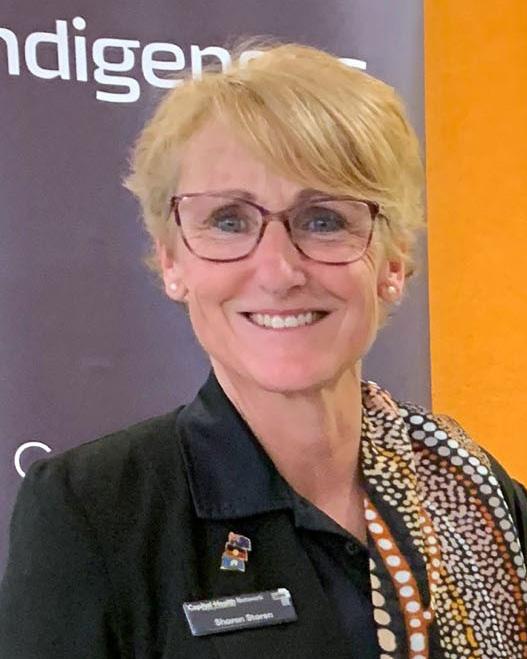

Our continuing journey to building Organisational Cultural Competency
By developing our cultural competency, our organisational aim is to thrive with the knowledge, skills and confidence to work more effectively with First Nations colleagues, consumers, stakeholders
and communities. CHN’s continued commitment and journey in the implementation of our Cultural Competency Framework (CCF) has been one of reflection, learning, growth and progress.
Staff had the opportunity to experience a cultural immersion day guided by Coolamon Advisors and Mulleun Dreaming. Following a walk on Ngunnawal Country, we tried weaving while yarning about our experience and how we can implement these learnings into our strategic vision. The heartfelt immersion day gave staff a deeper understanding of valuable local knowledge and appreciation of First Nations people and the land on which we work. >
The Health Advocate • FEBRUARY 2023 29
DR NAOMI LUCK Capital Health Network, Indigenous Health GP Advisor
SHARON STOREN Capital Health Network, Indigenous Health Manager
Facilitating co-design
CHN’s Indigenous Health Manager, Sharon Storen said that CHN currently facilitates the co-design, funding and support for programs that improve access to culturally safe, holistic and integrated health and well-being services for the more than 8,600 Aboriginal and Torres Strait Islander people in the ACT.

‘One of these programs is the Integrated Team Care program. Over the last year, over 13,300 occasions of service were provided to assist First Nations people who have complex chronic diseases to access health care services through a Care Coordinator. As a result of the program, we’ve seen First Nations people experience improved pathways and service linkages resulting in improved access to health care and quality of life,’ said Ms Storen.
CHN partners with Grand Pacific Health to support clients who have been referred to them through mainstream GPs and the local Aboriginal Community Controlled Health Service, Winnunga Nimmityjah Aboriginal Health and Community Services to provide the program for their clients. This is funded by the Australian Government’s Indigenous Australians’ Health Programme.
Client story
Don is a proud Aboriginal man living with multiple chronic health issues that impact his every day life. ‘I got through leukemia, but I also have prostate issues, a heart condition, diabetes, sleep apnoea, mobility issues, arthritis, eye disease and my eyesight is deteriorating, I am now blind in one eye. I just have to take one day at a time,’ said Don.
The Integrated Team Care Program is providing support to Don through the Aboriginal Health Team. Don said ‘The team has been fantastic helping me understand the program and understand more about my health issues’.
The program has supported Don by providing care coordination, links to his medical appointments, transport support and some medical equipment.
‘It’s been great having help to get to specialist appointments. Public transport can’t get me close enough to the specialist rooms. I try to manage my own appointments where possible and pay for things when I can, I don’t like to be dependent upon anyone, but sometimes I need help. Grand Pacific Health has helped me stay above the poverty line which I am very grateful for,’ said Don.
The above is an excerpt from Grand Pacific Health ‘Real Stories’.
30 The Health Advocate • FEBRUARY 2023
CHN’s cultural immersion experience on Ngunnawal Country on which we work
Enhancing culturally safe primary health care practices
Dr Naomi Luck, CHN’s Indigenous Health GP Advisor said we know that culturally appropriate and safe primary health care services are essential in supporting First Nations people.
‘So since 2019 we have partnered with Coolamon Advisors, a local Indigenous majority owned and managed organisation, to support them to deliver RACGP-accredited Aboriginal and Torres Strait Islander cultural awareness training. This training has been specifically developed for primary health care professionals in our region. The interactive sessions allow participants to learn, ask questions and explore culture to improve their understanding of the importance of providing a culturally safe space for First Nations people so they can access their healthcare needs,’ said Dr Luck.
CHN is developing an ‘Aboriginal and Torres Strait Islander Toolkit for General Practice’ which will complement our cultural awareness training by:

• supporting a whole of practice approach in the delivery of culturally appropriate care
• assisting practice staff to understand government programs and initiatives for First Nations people
• enabling all practice staff to appreciate their role in assisting First Nations peoples on their journey to better health outcomes.
The ‘Aboriginal and Torres Strait Islander Toolkit for General Practice will be available on our website at: www.chnact.org.au.

The Health Advocate • FEBRUARY 2023 31
“Over the last year, over 13,300 occasions of service were provided to assist First Nations people who have complex chronic diseases to access health care services through a Care Coordinator.”
Closing the cross-border gap for the Goondiwindi region

Darling Downs and West Moreton PHN is partnering with local health providers to coordinate better health care for Aboriginal and Torres Strait Islander residents of the Goondiwindi region.
Goondiwindi is a regional town situated four hours inland from Brisbane, on the Queensland side of the border with New South Wales. Situated just beyond the New South Wales border are the towns of Toomelah, a local Aboriginal community and former mission, and Boggabilla, which has a predominately Indigenous population.
As a result, the local health system relies on close coordination between the state health departments, primary care, and the community to achieve equitable access to health care for community members living in Goondiwindi, Toomelah and Boggabilla.
In late 2022, the PHN hosted a cross-border
meeting that was attended by over twenty health professionals from the surrounding area. Topics included approved cross-border information sharing, improving access to transport and increasing access to allied health and dental. Importantly, the meeting also provided an opportunity to build stronger working relationships between local stakeholders.
The PHN’s work is continuing this year in close partnership with local providers, including Dr Sarah Gleeson from Goondiwindi Medical Centre. Dr Gleeson said local providers are working hard to achieve equity of access to health care for the entire community, regardless of which side of the border they reside.
‘We greatly appreciate the assistance of the Darling Downs and West Moreton PHN. For the first time in over a decade, we feel like our concerns have been heard and understood.
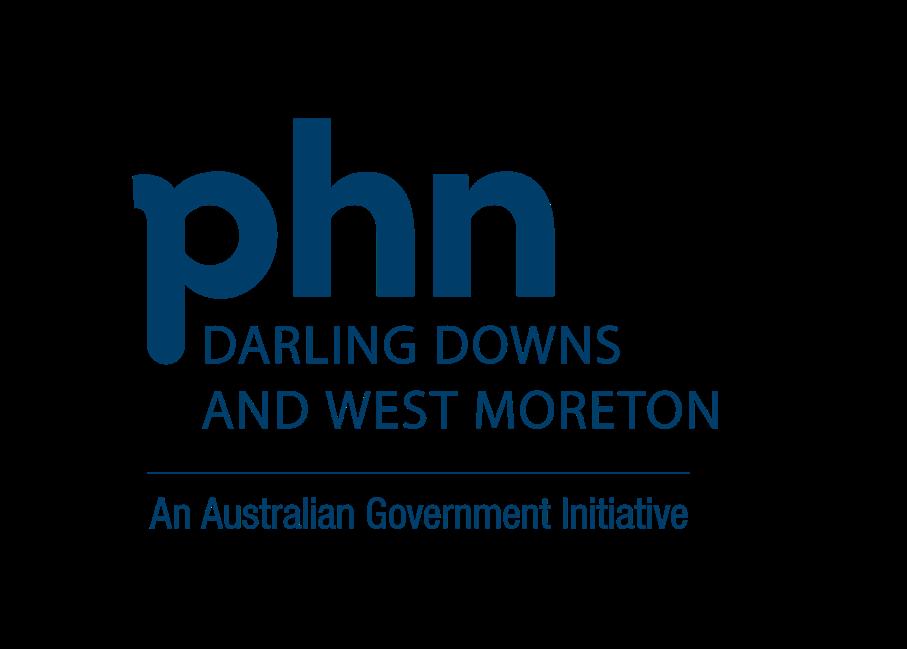
32 The Health Advocate • FEBRUARY 2023
There is a significant amount of work to be done at high levels, but we are on the right track,’ Dr Gleeson said.
Another local provider, Pius X, operates the Toomelah Outreach Health Clinic. Ann Marie Thomas, a Registered Nurse who works at the clinic, said the town of 250 people will significantly benefit from collaboration between providers.
‘With the support of the PHN’s resources we will make a difference. This community deserves the best health care we can provide,’ said Ms Thomas.
Ann Marie Thomas regularly attends the PHNrun collaborative meetings, providing firsthand insight into the needs of the Toomelah community.
‘As an Aboriginal RN it’s important that we are able to communicate and support one another.’ Said Ms Thomas.
Darling Downs and West Moreton PHN will continue working alongside these dedicated providers to increase coordinated healthcare for the region. Darling Downs and West Moreton PHN CEO Lucille Chalmers is hopeful for the future of this work.
‘The health system in the Goondiwindi area is complex, but it is affirming to have the dedication of local health professionals who share our focus on improving health equity for the area,’ said Ms Chalmers.

‘We are working closely within these communities to reduce fragmentation and help close the gap for residents in these towns,’ said Ms Chalmers.
The local collaboration will continue into the new year with an interagency meeting and networking opportunities scheduled for early 2023. ha
The Health Advocate • FEBRUARY 2023 33
Goondiwindi and the Macintyre River which borders Queensland and New South Wales. Image credit: Goondiwindi Regional Council
“The health system in the Goondiwindi area is complex, but it is affirming to have the dedication of local health professionals who share our focus on improving health equity for the area.”
Become an AHHA member
Help make a difference on health policy, share innovative ideas and get support on issues that matter to you – join the AHHA.
The Australian Healthcare and Hospitals Association (AHHA) is the ‘voice of public healthcare’. We have been Australia’s independent peak body for public and not-forprofit hospitals and healthcare for over 70 years.
Our vision is a healthy Australia, supported by the best possible healthcare system. AHHA works by bringing perspectives from across the healthcare system together to advocate for effective, accessible, equitable and sustainable healthcare focused on quality outcomes to benefit the whole community.
We build networks, we share ideas, we advocate and we consult. Our advocacy and thought leadership is backed by high quality research, events and courses, consultancy services and our publications.
AHHA is committed to working with all stakeholders from
across the health sector and membership is open to any individual or organisation whose aims or activities are connected with one or more of the following:
• the provision of publiclyfunded hospital or healthcare services
• the improvement of healthcare
• healthcare education or research
• the supply of goods and services to publicly-funded hospitals or healthcare services.
Membership benefits include:
• capacity to influence health policy
• a voice on national advisory and reference groups
• an avenue to key stakeholders including governments, bureaucracies, media, likeminded organisations and other thought leaders in the health sector
• access to and participation in research through the Deeble Institute for Health Policy Research
• access to networking opportunities, including quality events
• access to education and training services
• access to affordable and credible consultancy services through JustHealth Consultants
• access to publications and sector updates, including:
-Australian Health Review
-The Health Advocate
-Healthcare in Brief
-Evidence Briefs and Issues Briefs.
To learn about how we can support your organisation to be a more effective, innovative and sustainable part of the Australian health system, talk to us or visit ahha.asn.au/membership.
34 The Health Advocate • FEBRUARY 2023
More about the AHHA
AHHA Board
The AHHA Board has overall responsibility for governance including the strategic direction and operational efficiency of the organisation.
Hon Jillian Skinner Chair
Dr Michael Brydon University of Notre Dame
Ms Lynelle Hales
Sydney North Primary Health Network
Ms Yasmin King
SkillsIQ
Prof Wendy Moyle Griffith University
Ms Susan McKee
Dental Health Services Victoria
Dr Kim Webber
cohealth
Mr Michael Culhane ACT Health Directorate
Mr Anthony Schembri AM
St Vincent’s Health Network
Sydney
AHHA National Council
The AHHA National Council oversees our policy development program. The full list of Council members can be found at: ahha.asn.au/governance Secretariat
Ms Kylie Woolcock Chief Executive
A/Prof Rebecca Haddock
Executive Director Knowledge Exchange
Ms Ellen Davies
Communications Manager
Mr Francis Claessens Research Officer
Ms Suzzie Harvey Director, Business Development
Ms Emma Hoban Policy Manager
Ms Naomi Sheridan Policy Analyst
Ms Amy Kang Administration Officer
AHHA sponsors
The AHHA is grateful for the support of HESTA Super Fund. Other organisations support the AHHA with Corporate, Academic, and Associate Membership and via project and program support. Contact details
AHHA Office
Unit 8, 2 Phipps Close Deakin ACT 2600
Postal address
PO Box 78 Deakin West ACT 2600
Membership enquiries
T: 02 6162 0780
F: 02 6162 0779
E: admin@ahha.asn.au
W: www.ahha.asn.au
The Health Advocate, general media and advertising enquiries
Ellen Davies
T: 02 6180 2826
E: communications@ahha.asn.au
The views expressed in The Health Advocate are those of the authors and do not necessarily reflect the views of the Australian Healthcare and Hospitals Association.
ISSN 2200-8632
The Health Advocate • FEBRUARY 2023 35 FROM THE AHHA DESK
Did you know the Australian Healthcare and Hospitals Association offers quality, affordable consultancy services?
For more than a decade, AHHA’s consultancy arm, JustHealth Consultants (JHC) has supported Australian healthcare organisations at national, state, regional hospital and community levels across all sectors to meet the complex strategic, workforce, governance and organisational requirements of today’s healthcare system.

QUALITY,AFFORDABLE CONSULTANCYSERVICES
JHC is more than just a consultancy. We are committed to the AHHA guiding principles that health care be effective, accessible, equitable, sustainable and outcomes-focused. We strive for system-wide solutions with our expertise spanning:

Workforce
Sustainability
Value-based health care
Strategy and Policy
Ngunnawal Country Unit 8, 2 Phipps Close Deakin ACT 2600 admin@ahha.asn.au +61 2 6162 0780
























































